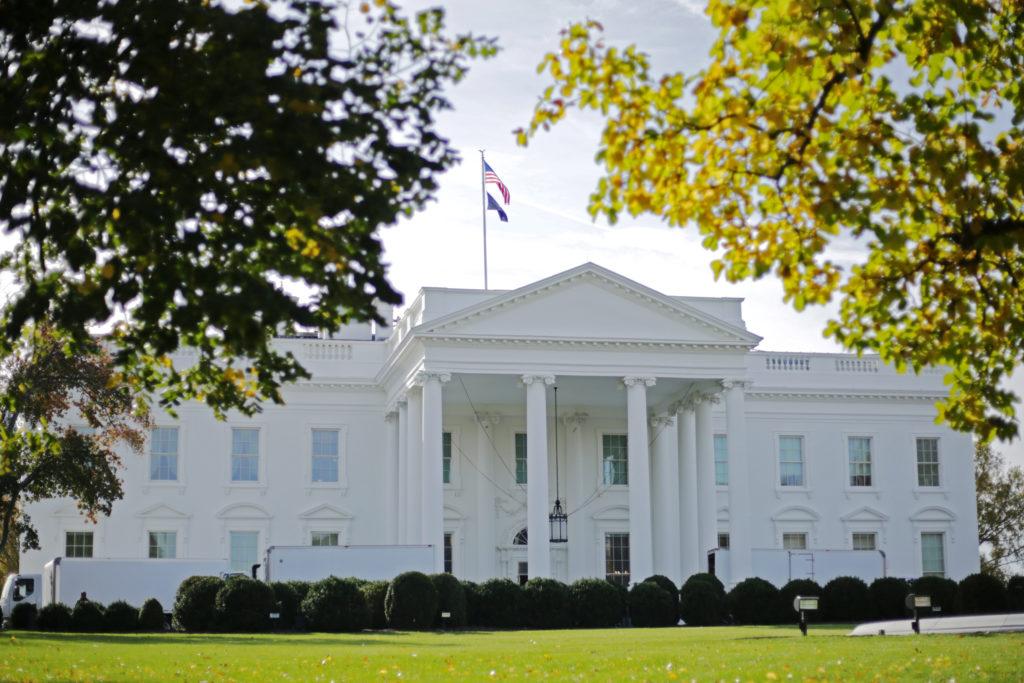Federally funded research must be open to the public as part of a White House memorandum issued late last month – a new requirement that experts said will increase faculty and students’ engagement with innovative research.
The memorandum, issued by the White House’s Office of Science and Technology, states that all federal research funding agencies like the U.S. Department of Agriculture and the Department of Energy must draft policies to make the peer-reviewed scholarly research that they fund available to the public. Information accessibility experts said the requirement will eliminate paywalls that prevent faculty and students from accessing federally-funded research and boost GW’s wider efforts to promote the use of open-access academic resources.
“Immediate public access to America’s research publications and data will serve our collective goals of accelerating scientific discovery, strengthening translation and policymaking and lowering the barriers of access to science for all of America,” the memorandum reads.
The memorandum states that agencies that fund $100 million or less in research have 360 days to submit their updated open access policies, while agencies that fund $100 million or more in research have 180 days.
The National Institutes of Health – an agency with more than $100 million in research funds – provides nearly 50,000 grants to more than 2,500 “universities, medical schools and other research institutions” and currently funds 140 research projects at GW, according to the agency’s website.
“The extraordinary progress in open science and public access led by federal agencies has laid the foundation for these critical next steps,” the memorandum states. “As we move forward together in implementing these critical actions, we will do so in partnership and with a shared vision for an ever-stronger and more equitable federal scientific ecosystem.”
Officials introduced a GW Libraries grant program in spring 2021 that awards faculty who adopted free, open-access materials. Officials awarded eight faculty members with grants ranging from $250 to $1,000 to switch to open-source materials between fall 2022-23.
Peter Suber, the senior adviser on open access for Harvard Library, said the memorandum strengthens policies that a 2013 memorandum established during former President Barack Obama’s administration, which only required agencies funding more than $100 million in research to adopt open access policies but did not include requirements that fund $100 million or less, like some humanities agencies.
“One of the small ones is the National Endowment for the Humanities, which was too small to be covered by the Obama guidelines, and therefore for the first time U.S. federal open access policies will cover the humanities, not just the sciences,” he said.
Suber said the memorandum will provide faculty members with greater access to scholarly articles that they can share with their students. He said in the past, faculty members often had to choose between only using the limited number of articles already freely available online or distributing photocopies of articles blocked by paywalls to their students.
“With these policies, many more articles will become freely available, and it will be unquestionably lawful to access them without payment,” he said. “The faculty member only has to share the URL to say this is the piece that I want you to read.”
Judy Ruttenberg, the senior director of scholarship and policy for the Association of Research Libraries, said the increased access that the memorandum sets in motion will enable faculty to read new research findings at a faster rate and connect with more people conducting research in their field.
“Before in a closed environment, people could be working on the same thing, they could be collaborating, they don’t even know about each other because they’re keeping it guarded until publication,” she said. “So I think there’s an acceleration of how people can find each other.”
Ruttenberg said the memorandum requires that agencies publicly share the data that underscores the research they fund. She said faculty members will be able to use more datasets when training their students in data science skills, like the replication of experiments, because of that inclusion.
The Columbian College of Arts and Sciences expanded its data science program in August 2021 with a Bachelor of Science degree and newly hired faculty members. The addition of the CCAS data science program falls in line with a growing demand for data science programs in universities across the country.
“Data science is a very data-hungry field where people are looking for datasets to use for training data or for developing those skills, so I think this is a boon across the board to those kinds of endeavors,” she said.
Ruttenberg said the memorandum will also give people with disabilities greater access to federally funded research because it instructs agencies to draft plans to require that databases make the federally funded articles they publish compatible with “machine-readability” and other assistive devices.
“The requirements need to facilitate that assistive technology accessibility,” she said.








